- Home
- Neil Gaiman
Unnatural Creatures Page 7
Unnatural Creatures Read online
Page 7
“More charcoal,” said Crawcrustle. “Cleans the blood, purifies the spirit.”
There was basswood and hickory, cut up into little chunks at the bottom of the can, all black and smoking.
“And will you actually eat this charcoal, Crawcrustle?” asked Professor Mandalay.
In response, Crawcrustle licked his fingers and picked out a lump of charcoal from the can. It hissed and fizzed in his grip.
“A fine trick,” said Professor Mandalay. “That’s how fire-eaters do it, I believe.”
Crawcrustle popped the charcoal into his mouth and crunched it between his ragged old teeth. “It is indeed,” he said. “It is indeed.”
Jackie Newhouse cleared his throat. “The truth of the matter is,” he said, “Professor Mandalay and I have deep misgivings about the journey that lies ahead.”
Zebediah merely crunched his charcoal. “Not hot enough,” he said. He took a stick from the fire, and nibbled off the orange-hot tip of it. “That’s good,” he said.
“It’s all an illusion,” said Jackie Newhouse.
“Nothing of the sort,” said Zebediah T. Crawcrustle primly. “It’s prickly elm.”
“I have extreme misgivings about all this,” said Jackie Newhouse. “My ancestors and I have a finely tuned sense of personal preservation, one that has often left us shivering on roofs and hiding in rivers—one step away from the law, or from gentlemen with guns and legitimate grievances—and that sense of self-preservation is telling me not to go to Suntown with you.”
“I am an academic,” said Professor Mandalay, “and thus have no finely developed senses that would be comprehensible to anyone who has not ever needed to grade papers without actually reading the blessed things. Still, I find the whole thing remarkably suspicious. If this Sunbird is so tasty, why have I not heard of it?”
“You have, Mandy old fruit. You have,” said Zebediah T. Crawcrustle.
“And I am, in addition, an expert on geographical features from Tulsa, Oklahoma, to Timbuktu,” continued Professor Mandalay. “Yet I have never seen a mention in any books of a place called Suntown in Cairo.”
“Seen it mentioned? Why, you’ve taught it,” said Crawcrustle, and he doused a lump of smoking charcoal with hot pepper sauce before popping it in his mouth and chomping it down.
“I don’t believe you’re really eating that,” said Jackie Newhouse. “But even being around the trick of it is making me uncomfortable. I think it is time that I was elsewhere.”
And he left. Perhaps Professor Mandalay left with him: that man was so grey and so ghostie, it was always a toss-up whether he was there or not.
Virginia Boote tripped over Zebediah T. Crawcrustle while he rested in her doorway, in the small hours of the morning. She was returning from a restaurant she had needed to review. She got out of a taxi, tripped over Crawcrustle and went sprawling. She landed nearby. “Whee!” she said. “That was some trip, wasn’t it?”
“Indeed it was, Virginia,” said Zebediah T. Crawcrustle. “You would not happen to have such a thing as a box of matches on you, would you?”
“I have a book of matches on me somewhere,” she said, and she began to rummage in her purse, which was very large and very brown. “Here you are.”
Zebediah T. Crawcrustle was carrying a bottle of purple methylated spirits, which he proceeded to pour into a plastic cup.
“Meths?” said Virginia Boote. “Somehow you never struck me as a meths drinker, Zebby.”
“Nor am I,” said Crawcrustle. “Foul stuff. It rots the guts and spoils the taste buds. But I could not find any lighter fluid at this time of night.”
He lit a match, then dipped it near the surface of the cup of spirits, which began to burn with a flickery light. He ate the match. Then he gargled with the flaming liquid, and blew a sheet of flame into the street, incinerating a sheet of newspaper as it blew by.
“Crusty,” said Virginia Boote, “that’s a good way to get yourself killed.”
Zebediah T. Crawcrustle grinned through black teeth. “I don’t actually drink it,” he told her. “I just gargle and breathe it out.”
“You’re playing with fire,” she warned him.
“That’s how I know I’m alive,” said Zebediah T. Crawcrustle.
Virginia said, “Oh, Zeb. I am excited. I am so excited. What do you think the Sunbird tastes like?”
“Richer than quail and moister than turkey, fatter than ostrich and lusher than duck,” said Zebediah T. Crawcrustle. “Once eaten it’s never forgotten.”
“We’re going to Egypt,” she said. “I’ve never been to Egypt.” Then she said, “Do you have anywhere to stay the night?”
He coughed, a small cough that rattled around in his old chest. “I’m getting too old to sleep in doorways and gutters,” he said. “Still, I have my pride.”
“Well,” she said, looking at the man, “you could sleep on my sofa.”
“It is not that I am not grateful for the offer,” he said, “but there is a bench in the bus station that has my name on it.”
And he pushed himself away from the wall, and tottered majestically down the street.
There really was a bench in the bus station that had his name on it. He had donated the bench to the bus station back when he was flush, and his name was attached to the back of the bench, engraved upon a small brass plaque. Zebediah T. Crawcrustle was not always poor. Sometimes he was rich, but he had difficulty in holding on to his wealth, and whenever he had become wealthy he discovered that the world frowned on rich men eating in hobo jungles at the back of the railroad, or consorting with the winos in the park, so he would fritter his wealth away as best he could. There were always little bits of it here and there that he had forgotten about, and sometimes he would forget that he did not like being rich, and then he would set out again and seek his fortune, and find it.
He had needed a shave for a week, and the hairs of his seven-day beard were starting to come through snow white.
They left for Egypt on a Sunday, the Epicureans. There were five of them there, and Hollyberry NoFeathers McCoy waved goodbye to them at the airport. It was a very small airport, which still permitted waves goodbye.
“Goodbye, Father!” called Hollyberry NoFeathers McCoy.
Augustus TwoFeathers McCoy waved back at her as they walked along the asphalt to the little prop plane, which would begin the first leg of their journey.
“It seems to me,” said Augustus TwoFeathers McCoy, “that I remember, albeit dimly, a day like this long, long ago. I was a small boy, in that memory, waving goodbye. I believe it was the last time I saw my father, and I am struck once more with a sudden presentiment of doom.” He waved one last time at the small child at the other end of the field, and she waved back at him.
“You waved just as enthusiastically back then,” agreed Zebediah T. Crawcrustle, “but I think she waves with slightly more aplomb.”
It was true. She did.
They took a small plane and then a larger plane, then a smaller plane, a blimp, a gondola, a train, a hot-air balloon, and a rented Jeep.
They rattled through Cairo in the Jeep. They passed the old market, and they turned off on the third lane they came to (if they had continued on they would have come to a drainage ditch that was once an irrigation canal). Mustapha Stroheim himself was sitting outside in the street, sitting on an elderly wicker chair. All of the tables and chairs were on the side of the street, and it was not a particularly wide street.
“Welcome, my friends, to my kahwa,” said Mustapha Stroheim. “Kahwa is Egyptian for ‘café,’ or for ‘coffeehouse.’ Would you like tea? Or a game of dominoes?”
“We would like to be shown to our rooms,” said Jackie Newhouse.
“Not me,” said Zebediah T. Crawcrustle. “I’ll sleep in the street. It’s warm enough, and that doorstep over there looks mighty comfortable.”
“I’ll have coffee, please,” said Augustus TwoFeathers McCoy.
“Of course.”
�
�Do you have water?” asked Professor Mandalay.
“Who said that?” said Mustapha Stroheim. “Oh, it was you, little grey man. My mistake. When I first saw you I thought you were someone’s shadow.”
“I will have shay sokkar bosta”—said Virginia Boote—which is a glass of hot tea with the sugar on the side. “And I will play backgammon with anyone who wishes to take me on. There’s not a soul in Cairo I cannot beat at backgammon, if I can remember the rules.”
Augustus TwoFeathers McCoy was shown to his room. Professor Mandalay was shown to his room. Jackie Newhouse was shown to his room. This was not a lengthy procedure; they were all in the same room, after all. There was another room in the back where Virginia would sleep, and a third room for Mustapha Stroheim and his family.
“What’s that you’re writing?” asked Jackie Newhouse.
“It’s the procedures, annals, and minutes of the Epicurean Club,” said Professor Mandalay. He was writing in a large leather-bound book with a small black pen. “I have chronicled our journey here, and all the things that we have eaten on the way. I shall keep writing as we eat the Sunbird, to record for posterity all the tastes and textures, all the smells and the juices.”
“Did Crawcrustle say how he was going to cook the Sunbird?” asked Jackie Newhouse.
“He did,” said Augustus TwoFeathers McCoy. “He says that he will drain a beer can, so it is only a third full. And then he will add herbs and spices to the beer can. He will stand the bird up on the can, with the can in its inner cavity, and place it up on the barbecue to roast. He says it is the traditional way.”
Jackie Newhouse sniffed. “It sounds suspiciously modern to me.”
“Crawcrustle says it is the traditional method of cooking the Sunbird,” repeated Augustus.
“Indeed I did,” said Crawcrustle, coming up the stairs. It was a small building. The stairs weren’t that far away, and the walls were not thick ones. “The oldest beer in the world is Egyptian beer, and they’ve been cooking the Sunbird with it for over five thousand years now.”
“But the beer can is a relatively modern invention,” said Professor Mandalay as Zebediah T. Crawcrustle came through the door. Crawcrustle was holding a cup of Turkish coffee, black as tar, which steamed like a kettle and bubbled like a tar pit.
“That coffee looks pretty hot,” said Augustus Two-Feathers McCoy.
Crawcrustle knocked back the cup, draining half the contents. “Nah,” he said. “Not really. And the beer can isn’t really that new an invention. We used to make them out of an amalgam of copper and tin in the old days, sometimes with a little silver in there, sometimes not. It depended on the smith, and what he had to hand. You need something that would stand up to the heat. I see that you are all looking at me doubtfully. Gentlemen, consider: of course the ancient Egyptians made beer cans; where else would they have kept their beer?”
From outside the window, at the tables in the street, came a wailing, in many voices. Virginia Boote had persuaded the locals to start playing backgammon for money, and she was cleaning them out. That woman was a backgammon shark.
Out back of Mustapha Stroheim’s coffeehouse there was a courtyard, containing a broken-down old barbecue, made of clay bricks and a half-melted metal grating, and an old wooden table. Crawcrustle spent the next day rebuilding the barbecue and cleaning it, oiling down the metal grille.
“That doesn’t look like it’s been used in forty years,” said Virginia Boote. Nobody would play backgammon with her any longer, and her purse bulged with grubby piasters.
“Something like that,” said Crawcrustle. “Maybe a little more. Here, Ginnie, make yourself useful. I’ve written a list of things I need from the market. It’s mostly herbs and spices and wood chips. You can take one of the children of Mustapha Stroheim to translate for you.”
“My pleasure, Crusty.”
The other three members of the Epicurean Club were occupying themselves in their own way. Jackie Newhouse was making friends with many of the people of the area, who were attracted by his elegant suits and his skill at playing the violin. Augustus TwoFeathers McCoy went for long walks. Professor Mandalay spent time translating the hieroglyphics he had noticed were incised upon the clay bricks in the barbecue. He said that a foolish man might believe that they proved that the barbecue in Mustapha Stroheim’s backyard was once sacred to the Sun. “But I, who am an intelligent man,” he said, “see immediately that what has happened is that bricks that were once, long ago, part of a temple have, over the millennia, been reused. I doubt that these people know the value of what they have here.”
“Oh, they know all right,” said Zebediah T. Crawcrustle. “And these bricks weren’t part of any temple. They’ve been right here for five thousand years, since we built the barbecue. Before that we made do with stones.”
Virginia Boote returned with a filled shopping basket. “Here,” she said. “Red sandalwood and patchouli, vanilla beans, lavender twigs and sage and cinnamon leaves, whole nutmegs, garlic bulbs, cloves and rosemary—everything you wanted and more.”
Zebediah T. Crawcrustle grinned with delight.
“The Sunbird will be so happy,” he told her.
He spent the afternoon preparing a barbecue sauce. He said it was only respectful, and besides, the Sunbird’s flesh was often slightly on the dry side.
The Epicureans spent that evening sitting at the wicker tables in the street out front, while Mustapha Stroheim and his family brought them tea and coffee and hot mint drinks. Zebediah T. Crawcrustle had told them that they would be having the Sunbird of Suntown for Sunday lunch, and that they might wish to avoid food the night before, to ensure that they had an appetite.
“I have a presentiment of doom upon me,” said Augustus TwoFeathers McCoy that night, in a bed that was far too small for him, before he slept. “And I fear it shall come to us with barbecue sauce.”
They were all so hungry the following morning. Zebediah T. Crawcrustle had a comedic apron on, with the words KISS THE COOK written upon it in violently green letters. He had already sprinkled the brandy-soaked raisins and grain beneath the stunted avocado tree behind the house, and he was arranging the scented woods, the herbs, and the spices on the bed of charcoal. Mustapha Stroheim and his family had gone to visit relatives on the other side of Cairo.
“Does anybody have a match?” Crawcrustle asked.
Jackie Newhouse pulled out a Zippo lighter, and passed it to Crawcrustle, who lit the dried cinnamon leaves and dried laurel leaves beneath the charcoal. The smoke drifted up into the noon air.
“The cinnamon and sandalwood smoke will bring the Sunbird,” said Crawcrustle.
“Bring it from where?” asked Augustus TwoFeathers McCoy.
“From the Sun,” said Crawcrustle. “That’s where he sleeps.”
Professor Mandalay coughed discreetly. He said, “The Earth is, at its closest, ninety-one million miles from the Sun. The fastest dive by a bird ever recorded is that of the peregrine falcon, at two hundred seventy-three miles per hour. Flying at that speed, from the Sun, it would take a bird a little over thirty-eight years to reach us—if it could fly through the dark and cold and vacuum of space, of course.”
“Of course,” agreed Zebediah T. Crawcrustle. He shaded his eyes and squinted and looked upward. “Here it comes,” he said.
It looked almost as if the bird was flying out of the Sun; but that could not have been the case. You could not look directly at the noonday Sun, after all.
First it was a silhouette, black against the Sun and against the blue sky, then the sunlight caught its feathers, and the watchers on the ground caught their breath. You have never seen anything like sunlight on the Sunbird’s feathers; seeing something like that would take your breath away.
The Sunbird flapped its wide wings once, then it began to glide in ever-decreasing circles in the air above Mustapha Stroheim’s coffeehouse.
The bird landed in the avocado tree. Its feathers were golden, and purple, and silver. It was sm
aller than a turkey, larger than a rooster, and had the long legs and high head of a heron, though its head was more like the head of an eagle.
“It is very beautiful,” said Virginia Boote. “Look at the two tall feathers on its head. Aren’t they lovely?”
“It is indeed quite lovely,” said Professor Mandalay.
“There is something familiar about that bird’s head-feathers,” said Augustus TwoFeathers McCoy.
“We pluck the head feathers before we roast the bird,” said Zebediah T. Crawcrustle. “It’s the way it’s always done.”
The Sunbird perched on a branch of the avocado tree, in a patch of sun. It seemed almost as if it were glowing, gently, in the sunlight, as if its feathers were made of sunlight, iridescent with purples and greens and golds. It preened itself, extending one wing in the sunlight, then it nibbled and stroked at the wing with its beak until all the feathers were in their correct position, and oiled. Then it extended the other wing, and repeated the process. Finally, the bird emitted a contented chirrup, and flew the short distance from the branch to the ground.
It strutted across the dried mud, peering from side to side shortsightedly.
“Look!” said Jackie Newhouse. “It’s found the grain.”
“It seemed almost that it was looking for it,” said Augustus TwoFeathers McCoy. “That it was expecting the grain to be there.”
“That’s where I always leave it,” said Zebediah T. Crawcrustle.
“It’s so lovely,” said Virginia Boote. “But now I see it closer, I can see that it’s much older than I thought. Its eyes are cloudy and its legs are shaking. But it’s still lovely.”
“The Bennu bird is the loveliest of birds,” said Zebediah T. Crawcrustle.
Virginia Boote spoke good restaurant Egyptian, but beyond that she was all at sea. “What’s a Bennu bird?” she asked. ”Is that Egyptian for Sunbird?”
“The Bennu bird,” said Professor Mandalay, “roosts in the persea tree. It has two feathers on its head. It is sometimes represented as being like a heron, and sometimes like an eagle. There is more, but it is too unlikely to bear repeating.”

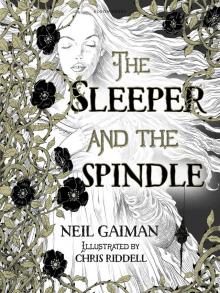 The Sleeper and the Spindle
The Sleeper and the Spindle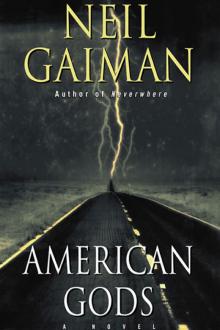 American Gods
American Gods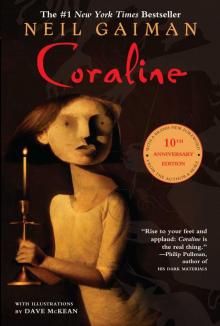 Coraline
Coraline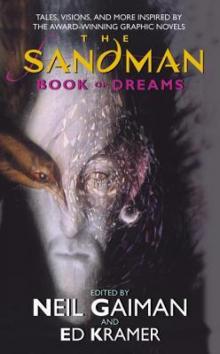 The Sandman: Book of Dreams
The Sandman: Book of Dreams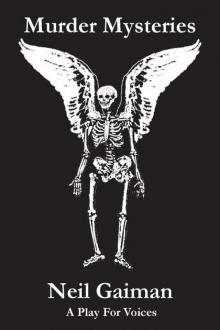 Murder Mysteries
Murder Mysteries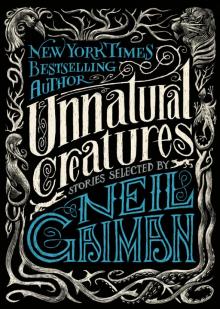 Unnatural Creatures
Unnatural Creatures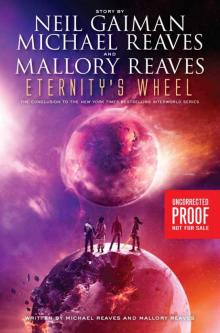 Eternity's Wheel
Eternity's Wheel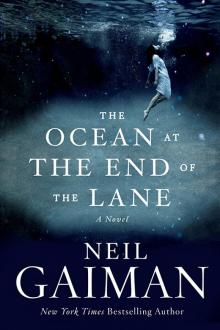 The Ocean at the End of the Lane
The Ocean at the End of the Lane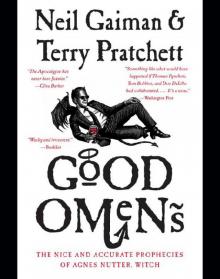 Good Omens
Good Omens Stardust
Stardust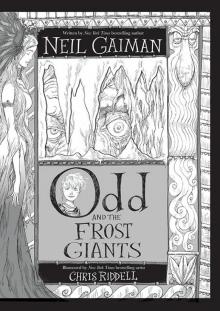 Odd and the Frost Giants
Odd and the Frost Giants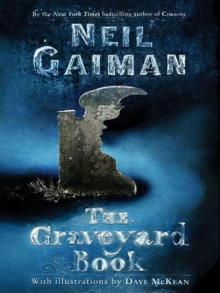 The Graveyard Book
The Graveyard Book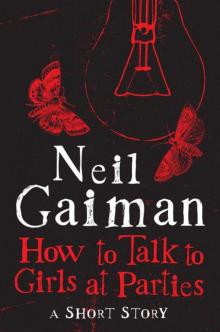 How to Talk to Girls at Parties
How to Talk to Girls at Parties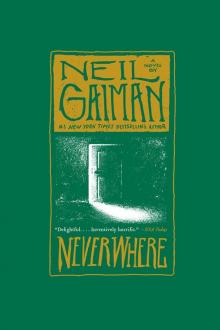 Neverwhere
Neverwhere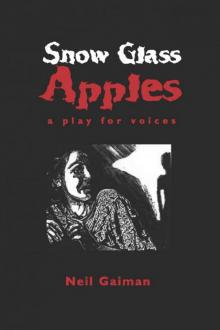 Snow, Glass, Apples
Snow, Glass, Apples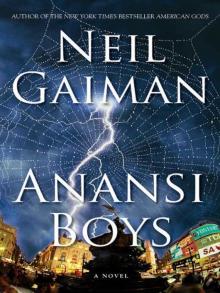 Anansi Boys
Anansi Boys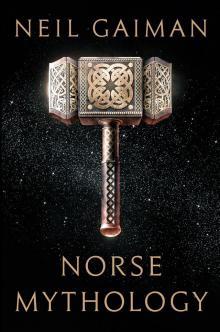 Norse Mythology
Norse Mythology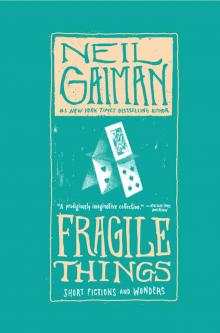 Fragile Things: Short Fictions and Wonders
Fragile Things: Short Fictions and Wonders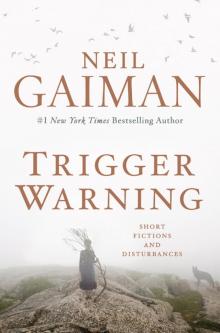 Trigger Warning: Short Fictions and Disturbances
Trigger Warning: Short Fictions and Disturbances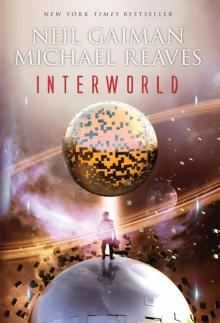 InterWorld
InterWorld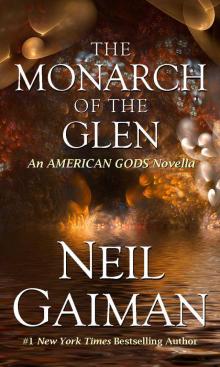 The Monarch of the Glen
The Monarch of the Glen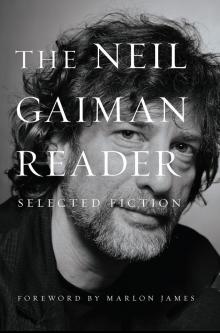 The Neil Gaiman Reader
The Neil Gaiman Reader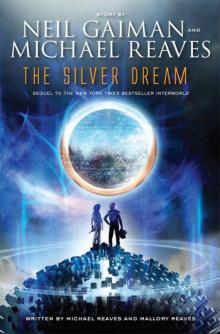 The Silver Dream
The Silver Dream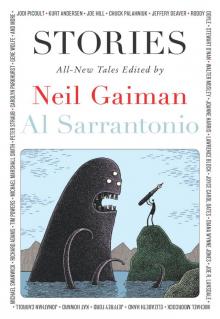 Stories
Stories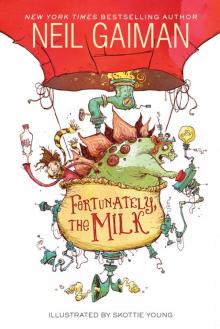 Fortunately, the Milk
Fortunately, the Milk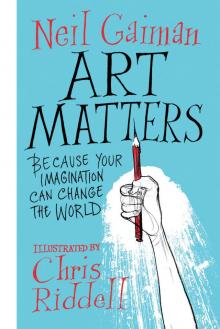 Art Matters
Art Matters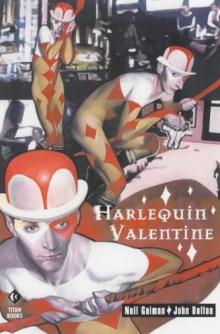 Harlequin Valentine
Harlequin Valentine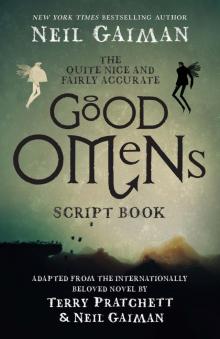 The Quite Nice and Fairly Accurate Good Omens Script Book
The Quite Nice and Fairly Accurate Good Omens Script Book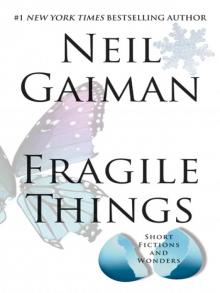 Fragile Things
Fragile Things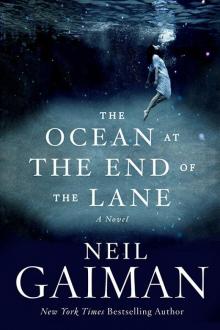 The Ocean at the End of the Lane: A Novel
The Ocean at the End of the Lane: A Novel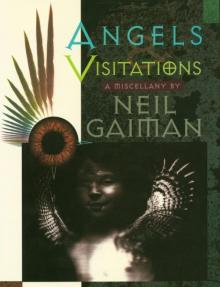 Angels and Visitations
Angels and Visitations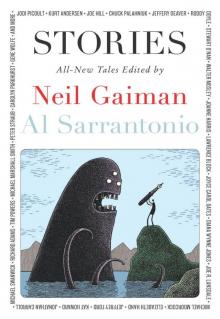 Stories: All-New Tales ngss-1
Stories: All-New Tales ngss-1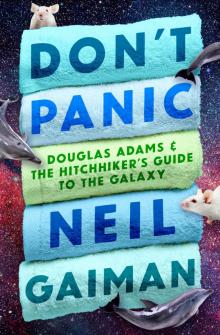 Don't Panic
Don't Panic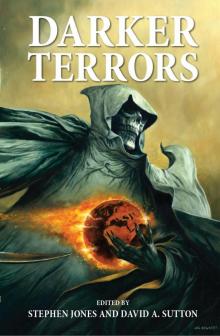 Darker Terrors
Darker Terrors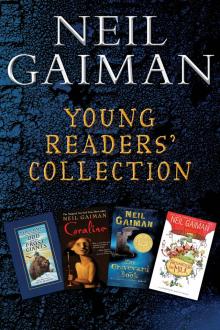 Neil Gaiman Young Readers' Collection
Neil Gaiman Young Readers' Collection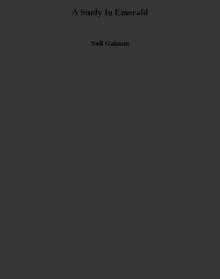 A Study In Emerald
A Study In Emerald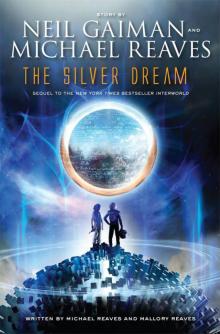 The Silver Dream: An InterWorld Novel
The Silver Dream: An InterWorld Novel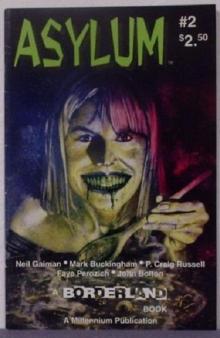 Feeders and Eaters
Feeders and Eaters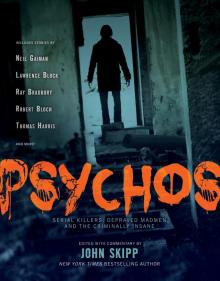 Psychos
Psychos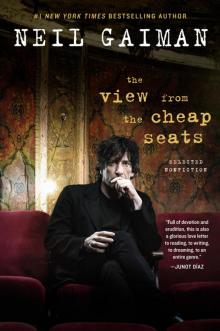 The View from the Cheap Seats
The View from the Cheap Seats Trigger Warning
Trigger Warning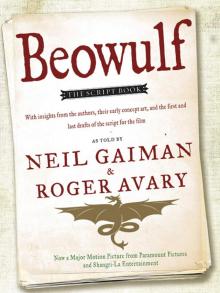 Beowulf
Beowulf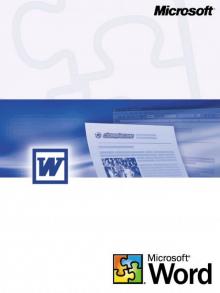 Nessun Dove
Nessun Dove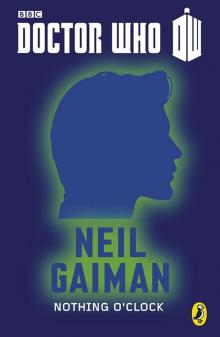 Doctor Who: Nothing O'Clock: Eleventh Doctor: 50th Anniversary
Doctor Who: Nothing O'Clock: Eleventh Doctor: 50th Anniversary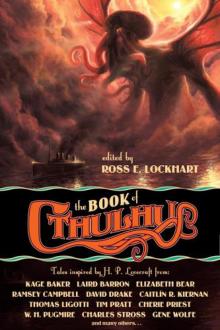 The Book of Cthulhu
The Book of Cthulhu